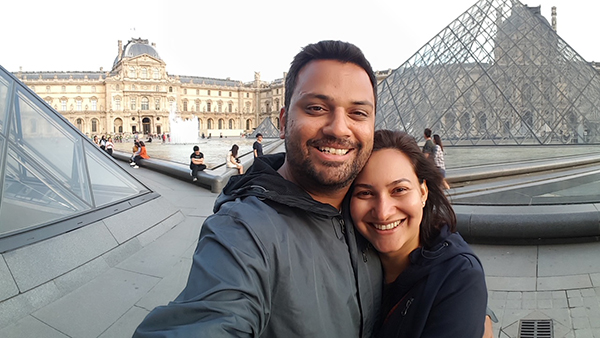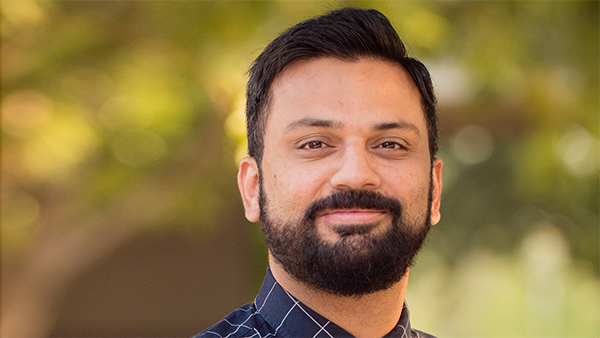|
Dr. Rohit Mehta did not have the greatest first impression of the United States. Born in Delhi, India, Mehta immigrated to the United States in 2008 to pursue higher education.
Mehta’s first trip to the United States was for his Masters of Science degree in electrical and computer engineering at the University of Florida, which Mehta describes as a let down.
“When I first came, I had a series of racialized experiences that highly discouraged me from living in the United States,” he said. “But, I came back to the United States for my doctorate with more political awareness, more social awareness. So, you can say my first time coming to the U.S. technically resulted in a failure.”
Despite facing numerous challenges and discrimination as an immigrant, Mehta was determined to make a difference. He earned a doctorate in educational psychology and educational technology from Michigan State University, becoming the first in his family to do so.
“Earning a Ph.D. was a very significant part of my life,” Mehta said. “It took a village to get that done. Having people around me to share that made the journey self-assuring because it made me believe I could achieve something bigger. It’s not just receiving the degree, but going through the process that was significant.”

|
|
Dr. Rohit Mehta traveling with his wife
|
After earning his doctorate he joined Fresno State in 2018 as an assistant professor for the Department of Curriculum and Instruction. He also joined the Asian Faculty and Staff Association board, and has been their secretary for the past two years.
“We joke about this a lot, but it has become the space where we can come together and just be ourselves,” he said. “Our focus has been on anti-Asian hate, and the events that have happened in the past two years. Meeting with other Asian faculty and staff on campus created a space of belonging and camaraderie.”
In fall 2022, 12% of the total enrolled student population at Fresno State identified as Asian. May was Asian American Pacific Islander Heritage Month, which not only provides an opportunity for others to appreciate the diverse cultures of Asian American and Pacific Islanders, it also gives Asian Americans and Pacific Islanders the opportunity to appreciate their own culture. Mehta was the guest speaker for the Asian American Programs and Services' annual Asian Pacific American Heritage Month Celebration in May.
“My heritage, for me, has not meant anything for a long period of time,” he said. “Now, I’m realizing that what it means is valuing where I come from as something that deserves love and respect. I love my language, my history, my traditions and the art of my people.”
Mehta’s love for the arts transcends into his connection with his heritage, as he explained how his grandparents never spoke about their Punjabi heritage, in which he had to discover it himself.
“When thinking of my ethnicity as not only broadly Indian, but as a Punjabi man, used to be difficult for me since I never grew up in Punjab. So, I’ve connected to that part of me through art and literature,” he said. “I think the key word to all of this would be knowledge. Connecting with the knowledge-making of your culture is a very strong connection.”
|



